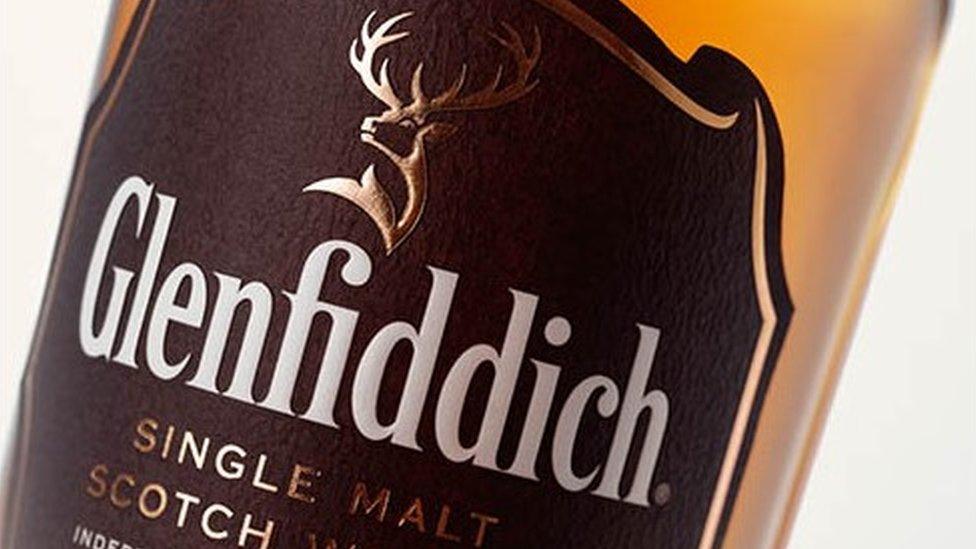More distilleries in England than Scotland for first time
- Published
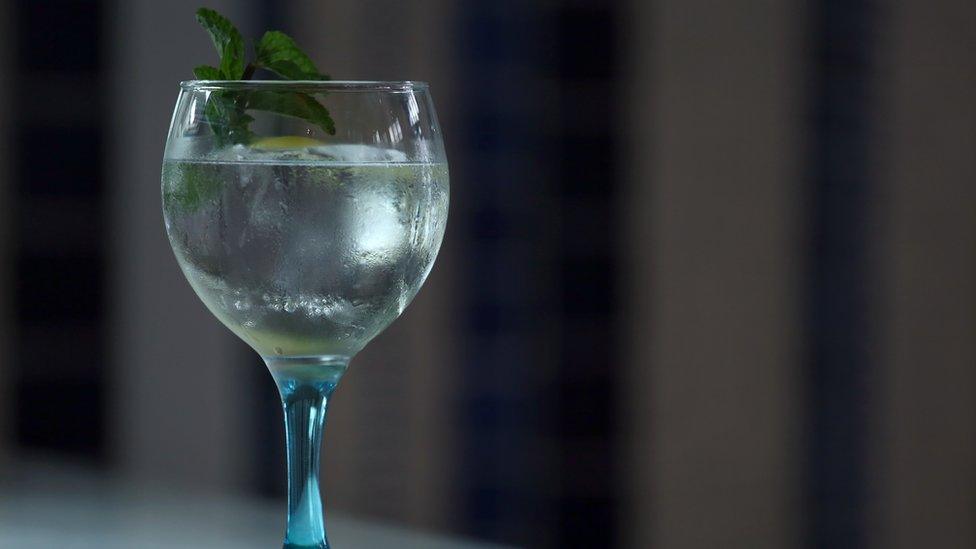
More than 66 million bottles of gin were sold in the UK last year, according to the Wine and Spirits Trade Association
England has more distilleries than Scotland for the first time since records began, amid a craft gin boom.
There were 361 distilleries recorded in the UK last year, of which 166 were based in England and 160 in Scotland, official figures from HMRC showed.
For years, Scottish manufacturers have made up the majority, owing to the popularity of Scotch whisky.
But a growing thirst for gin has driven the number of English distilleries to increase by 620% since 2010.
HMRC issued 31 new distillery licences in England in 2018 compared to 11 in Scotland.
The figures do not distinguish between distilleries that make whisky, gin, both or other spirits.
But according to the Wine and Spirits Trade Association (WSTA), more than 66 million bottles of gin were sold in the UK last year, up 41% on the previous 12 months.
The total value of gin sales in the UK was £1.9bn last year, according to the trade alliance's end of year report.
England had only 23 distilleries in 2010, when the WSTA started collecting data.
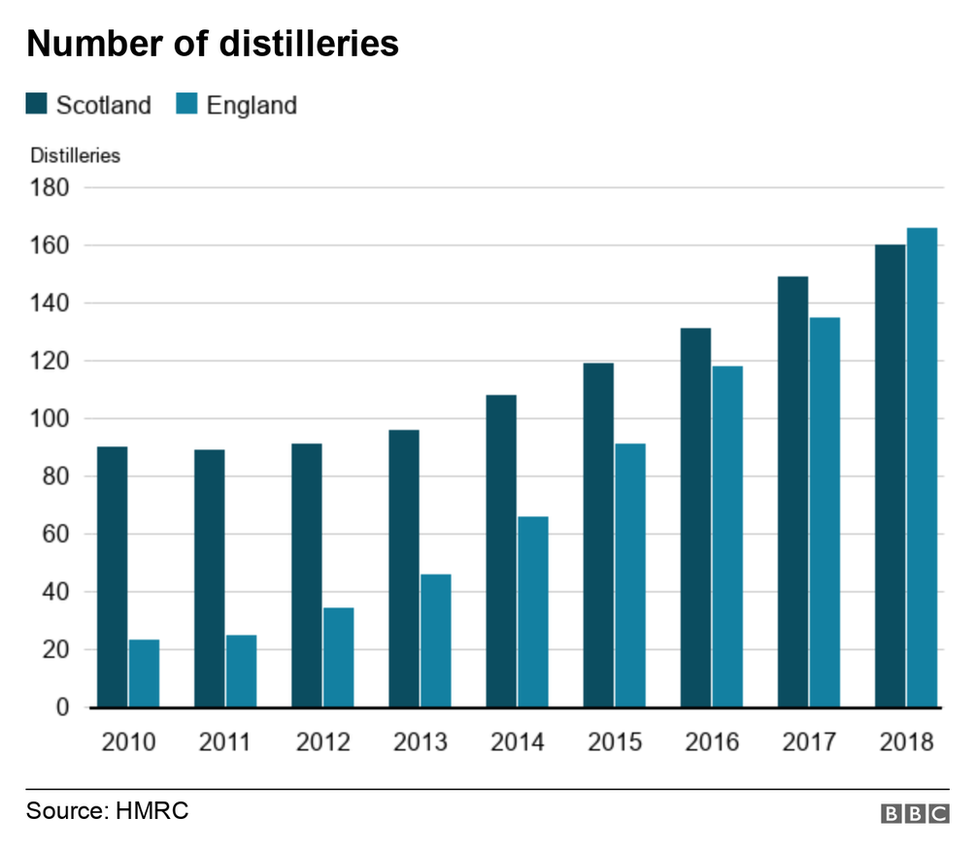

'The trend is your friend'
In 2014 Daniel Szor left a career in finance to found the Cotswolds Distillery in Stourton, Warwickshire, which produces a dry gin and other spirits that are sold in shops including Majestic Wine, Selfridges and Fortnum and Mason.
His decision to start the company was partly based on by the growing market for craft spirits in the US.
"Anything that works in the US seems to jump across the pond," he said.
His company, which was started in an old farmhouse, now sells more than 100,000 bottles of gin a year.
"Our tremendous success in gin was initially a bit of a surprise," Mr Szor said.
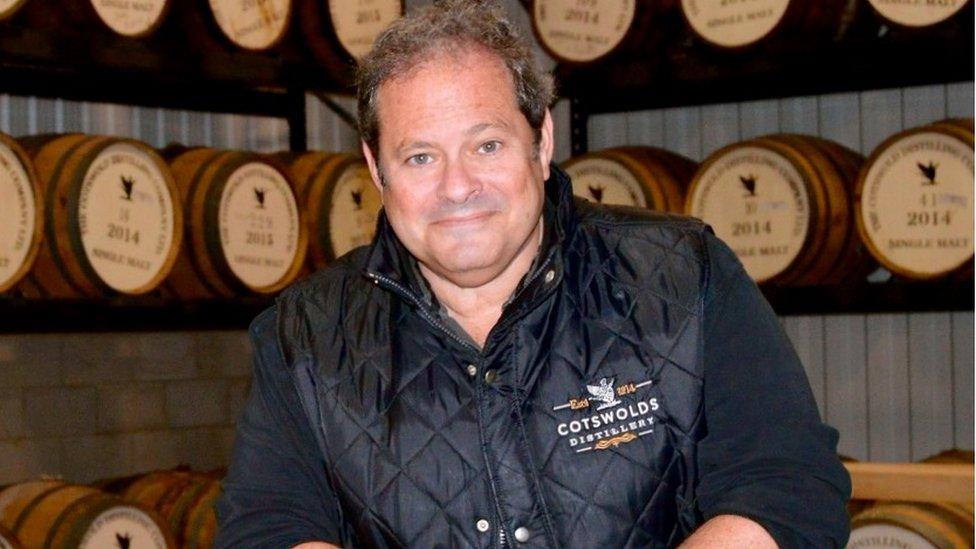
Daniel Szor left a career in finance to set up a distillery
But its popularity was partly due to gin being considered "quintessentially English", he said.
While spirits such as whisky are typically aged in oak casks for at least three years, gin can be made "instantaneously", making it easier to establish a gin distillery, he said.
"In my old business there was an expression 'the trend is your friend'," he said.
"Will we reach peak gin? Sure. But when that moment will occur and how that will occur is beyond me."
After years of trading financial derivatives, Mr Szor said he found it satisfying to make and sell a physical product.
"I now love what I do and live to work rather than work to live," he said.

'Healthy' competition
Su Black, head distiller at Kintyre Gin in Campbeltown, Argyll and Bute, said English gins did not threaten the future of the Scottish spirits industry "at all".
"It's a very crowded market, there is a lot of competition," she said.
"But I think it's healthy and it means you have to be good at what you do to survive."
English distilleries were "slightly behind the curve, in that Scottish ones got there first, but there is a place for authentic English craft spirits," she said.
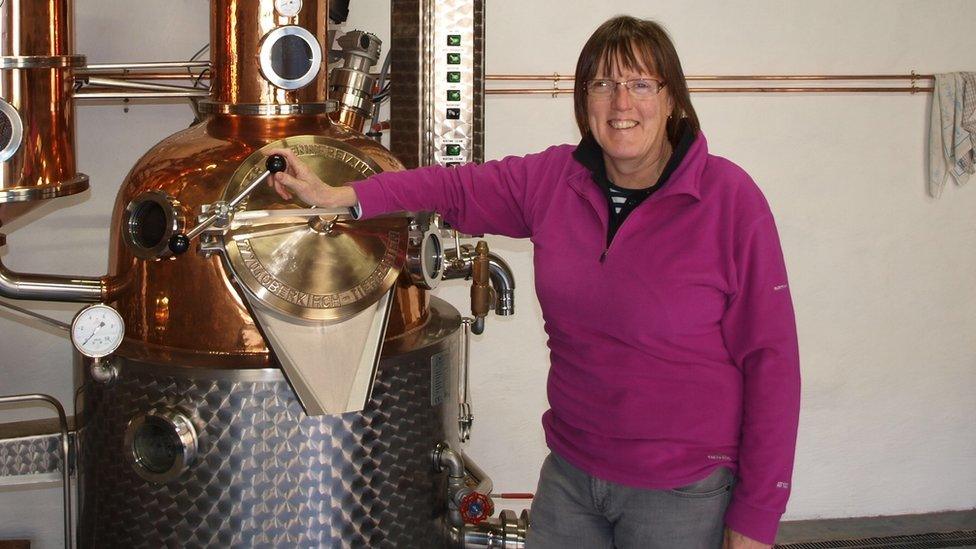
Su Black says the future of Scottish spirits is "promising"
Kintyre Gin was established in 2017 on a site the company says is powered entirely by hydro electric energy.
The future of the Scottish sprits industry was "as promising as anywhere else", Ms Black said.
"Nobody has a crystal ball, but there is a demand for authentic high quality spirits."

WSTA chief executive Miles Beale said: "With all the uncertainty surrounding Brexit it is extremely reassuring that our talented spirit makers are continuing to innovate, invest and grow.
"With England now boasting more distilleries than its Scottish cousins, 2018 really has marked a moment in history."
- Published16 November 2018
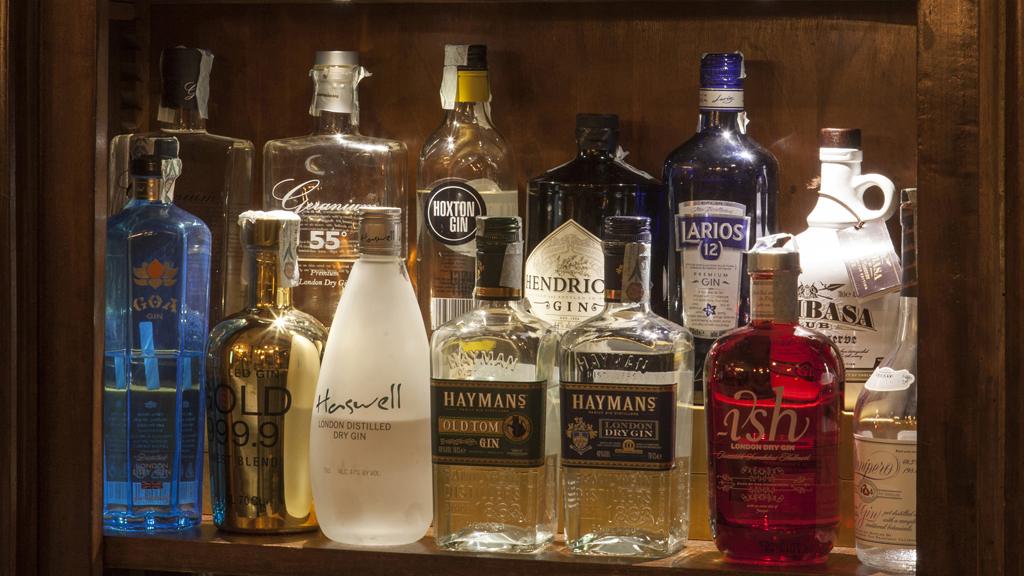
- Published11 October 2018
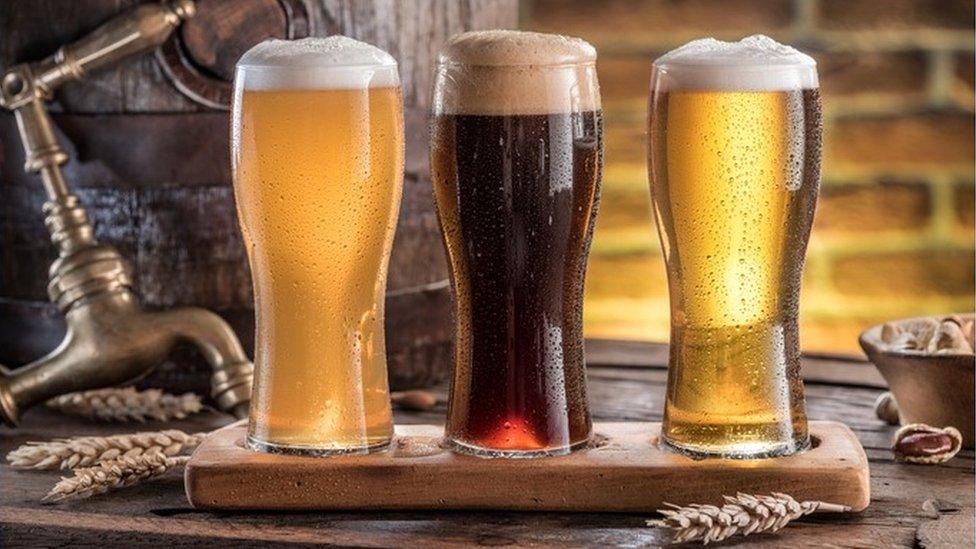
- Published5 October 2018
